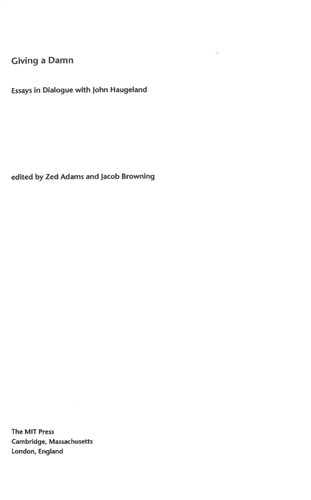

Most ebook files are in PDF format, so you can easily read them using various software such as Foxit Reader or directly on the Google Chrome browser.
Some ebook files are released by publishers in other formats such as .awz, .mobi, .epub, .fb2, etc. You may need to install specific software to read these formats on mobile/PC, such as Calibre.
Please read the tutorial at this link: https://ebookbell.com/faq
We offer FREE conversion to the popular formats you request; however, this may take some time. Therefore, right after payment, please email us, and we will try to provide the service as quickly as possible.
For some exceptional file formats or broken links (if any), please refrain from opening any disputes. Instead, email us first, and we will try to assist within a maximum of 6 hours.
EbookBell Team

5.0
28 reviewsIn his work, the philosopher John Haugeland (1945–2010) proposed a radical expansion of philosophy's conceptual toolkit, calling for a wider range of resources for understanding the mind, the world, and how they relate. Haugeland argued that “giving a damn” is essential for having a mind―suggesting that traditional approaches to cognitive science mistakenly overlook the relevance of caring to the understanding of mindedness. Haugeland's determination to expand philosophy's array of concepts led him to write on a wide variety of subjects that may seem unrelated―from topics in cognitive science and philosophy of mind to examinations of such figures as Martin Heidegger and Thomas Kuhn. Haugeland's two books with the MIT Press, Artificial Intelligence and Mind Design, show the range of his interests.
This book offers a collection of essays in conversation with Haugeland's work. The essays, by prominent scholars, extend Haugeland's work on a range of contemporary topics in philosophy of mind―from questions about intentionality to issues concerning objectivity and truth to the work of Heidegger. Giving a Damn also includes a previously unpublished paper by Haugeland, "Two Dogmas of Rationalism," as well as critical responses to it. Finally, an appendix offers Haugeland's outline of Kant's "Transcendental Deduction of the Categories."